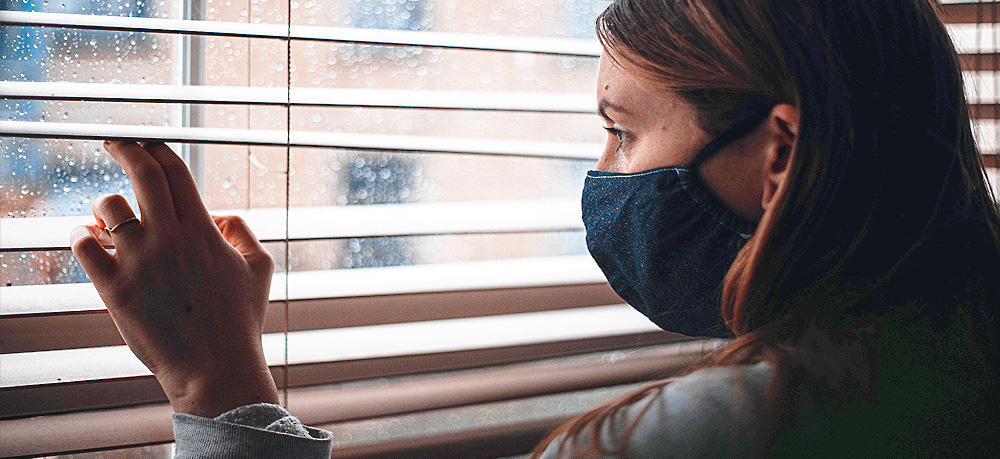How To Be Kind To Yourself: Showing self-compassion to both you & others experiencing the same kind of feelings
Why it’s important to be kind to yourself: It’s an ongoing internal tug of war, attempting to be kind to yourself using self-compassion can sometimes be a difficult task, especially when so many of us are having to deal with very similar challenging situations and emotions as a result of the Covid-19 pandemic.
During this time, and in days gone by, our sense of self can sometimes feel conflicted. Most people have a part of themselves that enables them to see the good in what they are doing, helps them to be on their own side in moments of disappointment, and offers support and encouragement as they try to move forward in their lives.
Showing self-compassion in situations like this can be a great tool that enables people to overcome many things.
They can, however, have another somewhat more critical part that relates to themselves in a harsher, negative, and sometimes bullying manner. It might try, for example, to self-punish when things go wrong and may even resort to direct self-attack through name-calling (‘you idiot, I can’t believe you said that!’).
The inner battle between these two parts can feel for some like an internal tug of war, and for those with high levels of shame and self-criticism, there is often only one winner. Over time, if left unchecked, the more critical part can provide the dominant narrative of events in a person’s life, negatively critiquing their performance and helping to reinforce the belief that they aren’t good enough in some way, and the thought of trying to be kind to yourself can fade into the background.
Why is trying to be kind to yourself so important?

Research suggests that shame and self-criticism are often rooted in histories of abuse, bullying, and neglect, and individuals who were exposed to early experiences of this nature can be hypersensitive to fears of rejection and become self-attacking in order to try and avoid it in the future.
As a result, individuals can often strive for perfection, leading to high levels of self-criticism at moments when they perceive themselves to have dropped below the standard considered acceptable. Trying to be kind to yourself in these situations and using self-compassion can prove to be extremely difficult, if not impossible without help.
In the last twenty years there has been considerable research conducted by leading academics, (including Paul Gilbert OBE and Professor Kristen Neff) aimed at demonstrating the negative impact that self-criticism has on wellbeing and highlighting its close links to common mental health problems, such as anxiety and depression.
There is also now a growing evidence base for how we can improve our self-esteem and confidence through practising self-compassion and changing the way that we think, feel and behave – and even how our brains and bodies work.
A more kind and compassionate relationship with trying how to be kind to ourselves can be extremely helpful for allowing people to navigate the ups, downs and struggles that are common to us all throughout our lives.
Dealing with the Coronavirus pandemic and self-blame

In working with people during the pandemic, I’ve had the privilege of gaining insights into how their inner critics have been hard at work.
For many, the last year has not been at all straightforward and whilst these events have been out of our control, people have often found it difficult to be kind to themselves and have been instead turning to blaming and shaming themselves for not making enough progress in their lives (‘why aren’t you using your time better?!’).
Self-criticism instead of self-compassion has also been present in people who are finding things difficult (‘you don’t even know how to home-school your own children. You’re a rubbish parent!’’) or for simply experiencing challenging feelings and emotions such as irritability, anxiety or overwhelm (‘why can’t you cope with this? You’re weak!’).
Rebalancing our inner dialogue

If you’re someone who becomes self-critical when they make mistakes or worries about a lot of things, such as what other people think about them or your performance at work – imagine learning how to stand back, notice what is happening in your mind, and being able to bring your own kindness and wisdom to the problem.
In the same way that your mind has learnt to think one way, it can be trained to develop more self-compassionate thought patterns that can become habitual over time.
Three simple steps on how to be kind to yourself:
If you’re interested in the above, you may benefit from doing some further reading around compassion-focused therapy or reaching out to a therapist practising in this area. In the meantime, here are a few simple steps to get you started:
-
-
- 1. Become more aware of your inner critic. Start writing down moments throughout your day when you notice yourself being self-critical and if there are particular situations when your inner critic pops up to say hello. What is it saying to you?
-
-
-
-
- 2. Imagine how you would speak to a best friend. Ask yourself whether what your inner critic is telling you is a fair reflection of your actions. Would you talk to a good friend the same way that you relate to yourself? Imagine how you’d talk to your best friend about the same situation and practice relating to yourself in this way.
-
-
-
-
- 3. Become your own inner coach. Once you have mastered step two, begin putting it into practice more regularly and look for opportunities throughout the day to become your own inner coach. Offer yourself encouragement, take note of the good things that you are doing, log your achievements, and begin to nurture the belief that you are proud of who you are.
-
Using the steps above will help give you the strength to be kind to yourself when things are not going well and enable you to nurture self-compassion in order to help avert negative self-criticisms that have the potential to chip away at your self-worth and can lead to common mental health problems such as anxiety and depression.
Information on the author:
Alec Williams is a qualified Integrative Counsellor and Coach and a registered member of the British Association for Counselling and Psychotherapy (MBACP), working at HQ Therapy Rooms in Hackney, London E8. He holds over 10 years experience of working in different roles within mental health settings, including acute psychiatric settings and the charity sector and specialises in supporting people to manage and overcome issues related to anxiety, depression and self-confidence.


